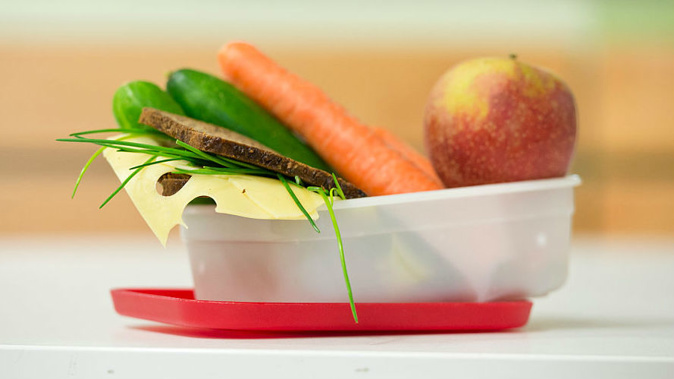
A bombshell study has found that most children in privately owned childcare centres are not getting enough healthy food - and they are getting too many "treats" that are bad for them.
The University of Auckland study has found that only 30 per cent of privately owned preschools that provide lunches meet at least eight out of 10 nutritional guidelines.
Community-owned centres run by churches and other non-profit groups scored better, but still only 58 per cent met at least eight of the guidelines.

Sarah Gerritsen found that most NZ daycare menus don't meet nutritional guidelines. Photo / Doug Sherring
Study author Sarah Gerritsen, who is doing a doctorate on the influence of childcare environments on obesity, said there was no obvious reason for serving the wrong foods apart from adult convenience.
"As a mum of two young children, I was surprised to see the levels of non-compliance, because it's not that arduous and nutrition is not that difficult," she said.
"The variety was quite poor in the privately run centres and there was not really any reason for that apart from a practical bureaucratic one of what works best for the centre, rather than what's best for the children."
She found that:
• Half the centres provide too much food that should be eaten only "sometimes", such as muffins, scones, pizza and sausage rolls.
• Half the centres' regular menus include foods that should be eaten only once a term ("occasional" foods), such as cake, sweets, soft drinks and fish and chips.
• Only about half give children enough bread, cereals and dairy products.
• Only 41 per cent of privately owned centres, but 95 per cent of community-owned centres, provide enough meat, eggs, beans and similar sources of protein.
• Almost all provide enough fruit and vegetables in total, but only 9 per cent provide as much vegetables as fruit.
"Three- and 4-year-olds need to be eating a wide range of vegetables to get a full palate of tastes and vitamins and minerals - all the colours of the rainbow," Gerritsen said.
"The lack of variety is problematic too, it's mostly apples and bananas. They need to be having exposure to a wide range."
The study is part of the Growing Up in NZ project, which is following about 7000 children born in Auckland, Counties Manukau and Waikato in 2009-10.
Gerritsen emailed all 847 early childhood centres in the three districts in 2014 and received responses from 257. Three-eighths of these (92) gave their children lunches, and 57 gave Gerritsen copies of their weekly menus.
"It wasn't just people who were proud of their menus, it does seem to be quite representative," she said.
She estimated that all-day centres providing lunches and snacks should be giving children half of the children's daily nutrition needs as defined by the Heart Foundation.
The analysis was based solely on the centres' regular menus and did not include treats for special events such as birthday parties, even though half of the wider group of 257 centres said they held such events at least once a month.
"The food at their celebrations wasn't just cake, it was sausage rolls and sugary drinks as well," Gerritsen said.
However centres were more likely to provide healthy food if they employed a cook and if they took part in the Heart Foundation's free Healthy Heart Award scheme, which includes about a quarter of the country's 4400 licensed early childhood services.
University of Otago dietitian Nikki Scott said children needed the recommended amounts of all foods including bread, cereals and dairy products to get enough vitamins, fibre and minerals such as calcium.
"As a parent whose children attend daycare, I feel some relief at the end of a busy day that my children have had a balanced meal at lunch so there is less pressure if your child chooses not to eat their evening meal," she said.
But Early Childhood Council chief executive Peter Reynolds said: "If there are 21 meals provided per week to a child (breakfast, lunch, dinner x 7), and centres provide up to five of those, there is a lot of responsibility also on parents to ensure adequate nutrition."
The Heart Foundation said its Healthy Heart Award scheme was available to all early childhood centres and advised parents to ask whether their centre had joined it.
-NZ Herald
Take your Radio, Podcasts and Music with you









